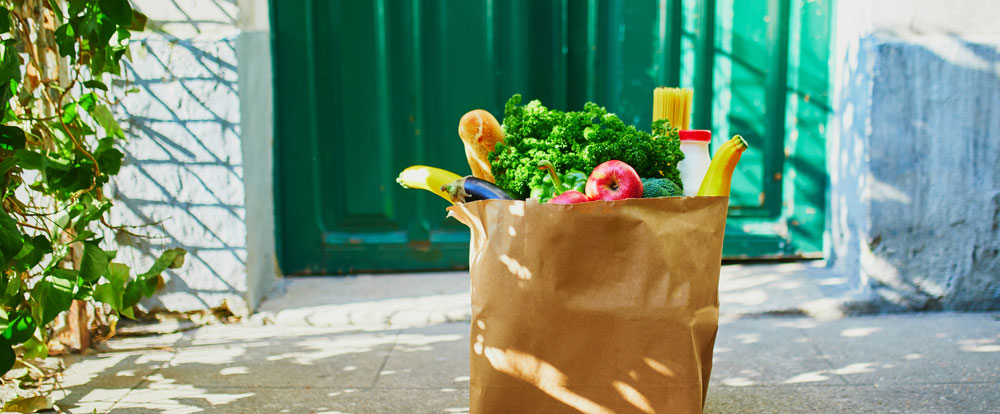June 03, 2020
Food safety is a prerequisite for food security and a healthy diet. To be considered healthy, food should be safe. When preparing food at home, it is important to follow safe food practices to avoid food contamination and foodborne diseases. While practicing home food safety and good personal hygiene are always important, handwashing is especially critical in reducing the spread of COVID-19 and should be done often.
According to the U.S. Food and Drug Administration (FDA), the Center for Disease Control and Prevention (CDC), and the U.S. Department of Agriculture (USDA), there is currently no evidence to suggest that COVID-19 can be transmitted through food or food packaging, but sharing food and beverages is discouraged. It is believed that the virus spreads from person-to-person through close contact or respiratory droplets, such as coughing or sneezing. However, it may be possible for viruses to survive on surfaces and objects, reinforcing the need to observe proper hygiene and food safety practices.
You can lower your risk of infection and kill the virus that causes COVID-19 by following safe food handling and cooking practices. These include:
- Wash your hands with soap and warm water for at least 20 seconds before and after handling food and food packaging. If you do not have running water, use one of the approved hand sanitizers.
- Disinfect any surfaces that will come into contact with food.
- Use common cleaning and disinfection methods to kill coronaviruses.
- Cook your food to recommended safe internal temperatures. Coronaviruses are killed by normal cooking temperatures.
- Avoid cross-contamination of raw and ready-to-eat or cooked foods.
- Use separate cutting boards and plates for produce, meat, poultry, seafood, and eggs.
- Washing fresh produce with soap, chlorine or other chemicals is not recommended. Fresh produce is porous and can absorb chemicals that are not intended for you to eat.
- Wash your fruit and vegetables under running water.
- When unpacking groceries, refrigerate or freeze meat, poultry, eggs, seafood, and other perishables—like berries, lettuce, herbs, and mushrooms—within two hours of purchasing
By following these key recommendations for safer food practices, you can prevent many common foodborne diseases and reduce the spread of COVID-19.
Stay safe. Stay healthy.
References:
- FDA: https://www.fda.gov/food/food-safety-during-emergencies/shopping-food-during-covid-19-pandemic-information-consumers
- Foodsafety.gov: https://www.foodsafety.gov/keep-food-safe/4-steps-to-food-safety
- CDC: https://www.cdc.gov/foodsafety/communication/socialmedia.html
- WHO: http://www.euro.who.int/en/health-topics/health-emergencies/coronavirus-covid-19/technical-guidance/food-and-nutrition-tips-during-self-quarantine
- Government of Canada: https://www.canada.ca/en/health-canada/services/food-nutrition/food-safety/covid19.html
Dima El-Halabi, MSc, RDN
College of Health Sciences
Abu Dhabi University

